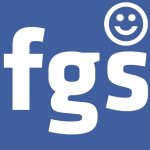 Beijing, China — In a shocking move over the weekend, Apple was slammed with a lawsuit over purportedly illegal ebook downloads for its iOS devices, in a Beijing court after officials admitted a case filed by a consortium of well-known Chinese writers against the company, demanding that it pays the authors 11.91 million yuan (US$1.88 million) for selling illegal downloads of their work on the App Store.
Beijing, China — In a shocking move over the weekend, Apple was slammed with a lawsuit over purportedly illegal ebook downloads for its iOS devices, in a Beijing court after officials admitted a case filed by a consortium of well-known Chinese writers against the company, demanding that it pays the authors 11.91 million yuan (US$1.88 million) for selling illegal downloads of their work on the App Store.
According to China’s People Daily reports that the writers are upset that unauthorized versions of their works have been submitted to the App Store and the 11.91 million yuan suit represents the situation as “total theft”, the People’s Daily reported, further stating that with the authors’ ire raised by Apple’s 30-percent cut on paid downloads that means the Cupertino firm is actually profiting from sales of illegal downloads of the books.

Furthermore, apart from numerous writers are the famous blogger and social critic Han Han, and the controversial author Li Chengpeng, whose publication “Li Kele Fights Demolition” related to forced destructions and relocations–a politically volatile matter in China. Other distinguished writers Cang Yue and Murong Xuecun are also among the litigants.
The writer’s association under the mantle of the China Written Works Copyright Society, nine writers are prosecuting Apple in Beijing’s No. 2 Intermediate People’s Court for copyright infringement of 37 works, and demanding 11.91 million yuan in compensation.
The group–in association with other authors–has also initiated campaigns over copyright violations against Baidu and Google. In 2010, Google expressed a formal apology to the writers, while in 2011 Baidu deleted nearly 2.8 million items in response to complaints from more than 40 authors.
Besides, the writer’s association has also requested Apple to abide by Chinese laws and provide copyright certification of books being sold on the App Store, though Apple has apparently refused to accept the request, and some of the copied texts have been downloaded several million times.
“The download number of one best-selling book is as much as one million, which creates about one billion dollars in losses for each writer,” the society’s spokesman Bei Zhicheng told the Nanjing Daily.
Apple ultimately pulled off the novel and issued a statement saying that developers, according to the terms of their agreement with Apple, may not violate, misappropriate or infringe copyright. The lawsuit is still pending.
The group of nine authors comprises Han Han, Li Chengpeng, Murong Xuecun, who intend to sue Apple for sharing 37 works.
Interestingly, this is not the first time Apple is alleged over its ebooks strategy. In August 2011, another notable writer named Zhu Jintai appeared to be the first Chinese individual to file a lawsuit against Apple, when he sued the company for the alleged infringement of intellectual property rights. He resorted to litigation, he said, after Apple refused to provide any information about Apple’s developers.
Although, Apple will vigorously protest that it has perfectly chalked out procedures for copyright holders to complain about illegal uploads, the company may have to take a more proactive stance in future.
Back in September, six writers demanded 6.5 million yuan in compensation from Apple over the copyright infringement of 23 books. China’s Internet users are growing astronomically to reach 485 million by the end of June 2011. According to the newspaper Beijing Youth, the number of people reading e-books in China nearly tripled between 2005 and 2010, to 121.19 million.
Moreover, last year the European Commission said that it was initiating an investigation into allegations of potential antitrust behavior around ebooks, with Apple and publishers accused of price fixing and/or anti-competitive deals.


